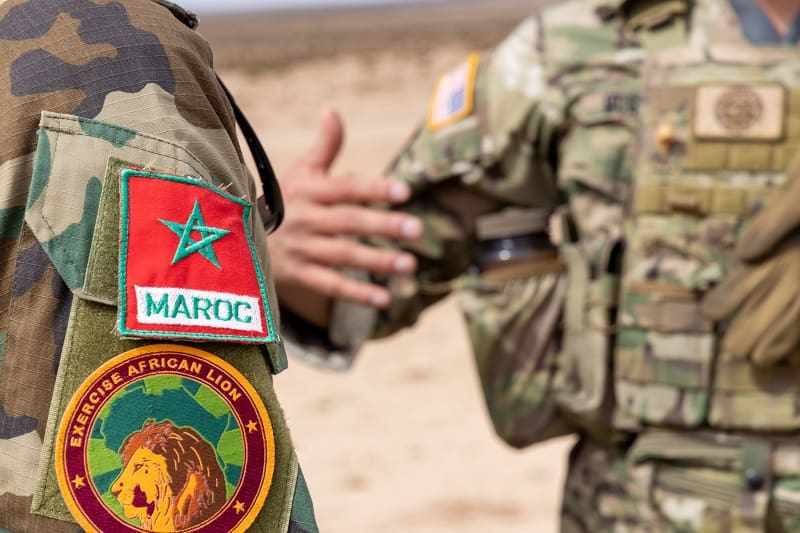
Agadir, Morocco – May 7, 2025
Under the sun-drenched skies of southern Morocco, the 21st edition of the African Lion military exercise roared to life this week in Agadir, marking another milestone in the deepening defense partnership between Morocco and the United States. The joint operation is the largest of its kind on the African continent and brings together over 8,000 troops from multiple allied nations.
Designed to strengthen interoperability between partner forces and bolster regional security, African Lion 2025 covers a wide range of training scenarios, including counterterrorism operations, peacekeeping missions, cyber defense drills, and humanitarian response simulations.
This year’s edition involves participants from more than a dozen countries, including NATO allies and African partners. Notably, troops from France, the United Kingdom, Senegal, Ghana, and Tunisia have joined forces with the Moroccan Royal Armed Forces and the United States Africa Command (AFRICOM) to conduct live-fire exercises, amphibious landings, and field training operations across various Moroccan regions, from Agadir to Tan-Tan and the remote desert expanse of the Sahara.
A Symbol of Regional Stability
The exercise comes at a critical time for North and West Africa, where threats from extremist groups, arms trafficking, and instability in the Sahel region remain high on the security agenda.
“African Lion isn’t just a training exercise — it’s a statement of unity and preparedness,” said Gen. Michael Langley, Commander of U.S. AFRICOM. “Together with Morocco and our other partners, we are reinforcing our shared commitment to peace, stability, and a secure future for Africa.”
The Moroccan Armed Forces echoed this sentiment, with General Belkhir El Farouk, Inspector General of the Royal Armed Forces, emphasizing that the collaboration reflects Morocco’s dedication to international military cooperation and counterterrorism efforts.
Strengthening Civil-Military Coordination
Beyond combat readiness, African Lion 2025 also features a robust humanitarian component. Medical outreach teams are providing health services to rural communities near exercise sites, while military engineers work on infrastructure upgrades, such as water purification systems and temporary medical clinics.
“Building stronger armies also means building stronger communities,” said Colonel Sara Timmons, a U.S. Army civil affairs officer. “We’re proud that part of this mission includes supporting local populations through humanitarian initiatives.”
A Tradition That Grows
First launched in 2003, African Lion has grown in scope and significance each year. Morocco, one of the United States’ oldest allies and a key strategic partner in the region, continues to host the bulk of the exercises, reinforcing its role as a regional hub for security and cooperation.
As the global spotlight increasingly turns toward Africa’s evolving geopolitical landscape, the African Lion exercises highlight how military collaboration can serve as a bridge for diplomacy, capacity-building, and enduring alliances.




